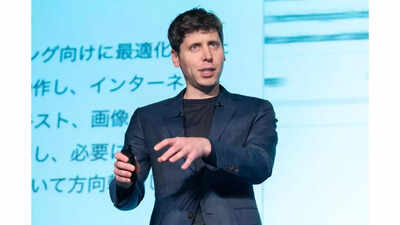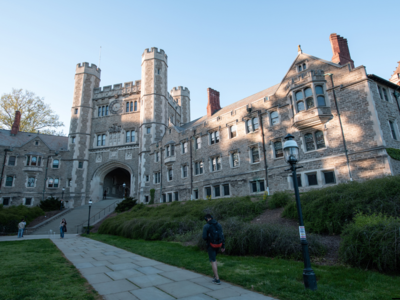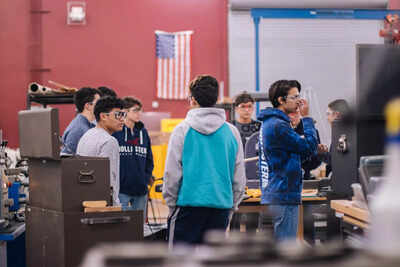Will your future job feel like playing a game? OpenAI CEO Sam Altman thinks so

In a time when AI is rapidly transforming industries, OpenAI CEO Sam Altman has offered a vision that feels surprisingly optimistic. Reflecting on the future of work, he recently wrote on X, “Maybe the jobs of the future will look like playing games to us today, while still being very meaningful to those people of the future.” The statement speaks not only to how work will change, but also to how it may feel.It is a perspective that challenges the common fear that AI will make human work obsolete. Instead, Sam Altman suggests that work could become more engaging, expressive, and rewarding, even if it looks radically different from what we know today.
From repetition to creativity
Altman’s insight builds on a larger conversation that leaders like NVIDIA CEO Jensen Huang have sparked in recent months. Their argument is not just that jobs will change because of AI, but that human effort will be redirected toward creativity, experimentation, and meaning. As automation replaces repetitive or analytical tasks, professionals will be expected to take on work that feels less mechanical and more dynamic.The shift is already underway. In 2025, companies are exploring immersive workspaces using virtual reality, AI-assisted design workflows, and prompt-based content generation. These tools are pushing professionals towards higher-level responsibilities that involve managing outputs rather than producing them line-by-line.
Rising expectations for human potential
Altman points out that while AI will enhance people’s ability to do more, expectations will also increase. That means jobs may feel more like fast-paced collaboration or high-level decision-making, with human judgment at the center. The experience may feel like a strategy game, where the stakes are real but the process is engaging, layered, and creative.This shift will demand new capabilities. Young professionals will need to adapt to roles where they manage systems, solve abstract problems, and interpret complex inputs. In this environment, soft skills like communication, empathy, and storytelling will matter as much as technical know-how.
Learning paths are evolving
Colleges and online platforms are already adapting. Institutions like IIT Madras and IIIT Hyderabad have begun integrating courses on AI ethics, systems thinking, and responsible innovation into their curriculum, reflecting a broader shift in Indian higher education towards interdisciplinary and future-focused learning. Meanwhile, EdTech platforms are also seeing a rise in demand for “prompt engineering,” and “AI-assisted writing” courses.These developments reflect a shift in how students and early-career professionals are preparing. Rather than specialising only in traditional job functions, many are investing in interdisciplinary skills that allow them to work alongside AI, not against it.Altman’s statement also serves as a reminder that work has always evolved. What seems like play to one generation may carry deep value to another. A few decades ago, job titles such as community manager, UX writer, or social media strategist would have sounded trivial. Today, they are integral parts of many organisations.This pattern will likely continue. As the workplace becomes more fluid, young professionals must stay curious, flexible, and open to reinvention. Jobs may begin to feel more like games, but that does not make them less important. In fact, it might be a sign that meaning is being redefined for a new era of work.TOI Education is on WhatsApp now. Follow us here.





